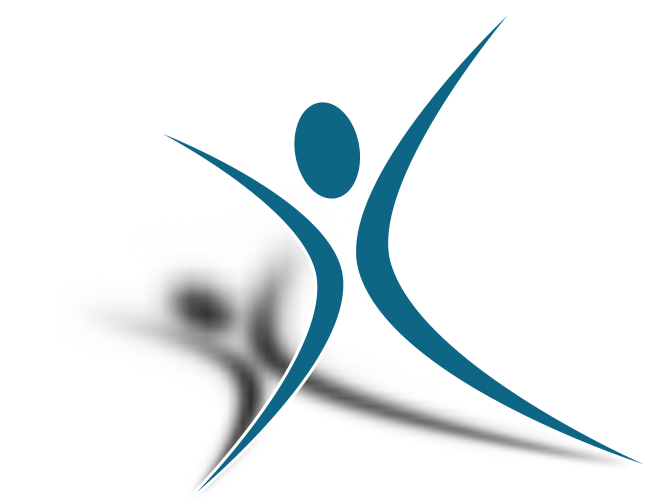Posts by Dr. David Basco
DRX9000
The DRX9000™ is a medical device used in the treatment of various spinal conditions, primarily focused on addressing chronic back pain resulting from conditions such as herniated discs, degenerative disc disease, and sciatica. Developed as a non-surgical alternative to traditional spinal surgery, the DRX9000™ employs spinal decompression therapy to alleviate pain and improve the quality of life for many patients.
The DRX9000 works on the principle of spinal decompression, a process aimed at relieving pressure on the intervertebral discs in the spine.
This pressure often results from the compression of herniated or bulging discs and can lead to persistent and debilitating pain. The DRX9000™ uses a specialized table, often referred to as a decompression table, to gently and precisely stretch the spine, creating a vacuum effect within the discs. This vacuum effect allows herniated or bulging discs to retract, reducing pressure on the nerves and promoting the body’s natural healing processes.
Patients undergoing DRX9000™ treatment typically lie comfortably on the decompression table, secured with specialized straps. The machine’s computer-controlled system then guides the treatment, adjusting the angle, force, and duration of the decompression in response to the patient’s unique needs. This individualized approach ensures safety and effectiveness, minimizing discomfort during the procedure.
Over the course of several sessions, patients often experience a reduction in pain, improved mobility, and increased overall comfort.
The DRX9000™ treatment is non-invasive and does not require the use of anesthesia or any incisions, making it a more appealing option for individuals who wish to avoid the risks and recovery associated with traditional back surgery.
While the DRX9000 has shown promise in relieving chronic back pain, it is essential to note that not all patients may be suitable candidates for this therapy. A thorough assessment by a qualified healthcare professional is necessary to determine the appropriateness of the treatment based on individual needs and medical history.
In summary, the DRX9000™ is a cutting-edge medical device that offers a non-surgical approach to treating chronic back pain by utilizing spinal decompression therapy. Its ability to reduce pressure on spinal discs and promote healing has made it an attractive option for individuals seeking relief from debilitating conditions that affect their quality of life. Nevertheless, as with any medical treatment, consulting with a healthcare professional is crucial to determine if the DRX9000™ is the right choice for a patient’s specific condition.
Jenna P.
My chiropractor recommended Dr. Basco’s spinal decompression machine to treat my bulging disc. For sure his 20 treatment plan was the key to my recovery. Beforehand I had disabling sciatica and 24 hour pain, could not walk a block or stand for more than a few minutes. I had had an epidural already but that only relieved my symptoms about 25%. The very first decompression treatment I had gave me as much relief as the epidural. By treatment 13 the sciatic pain was gone, and after the last few treatments I could walk and stand normally. Now I go in for monthly touch ups which feel great (for me the treatments while my condition was still acute were uncomfortable, but absolutely worth it). Even though I paid cash for the treatments I found them very affordable and worth every dollar. Do not even consider surgery before you try this first!
The Importance of Alignment for Better Balance
Without balance, life would be exceedingly difficult
Fortunately, we innately know how to balance. But that doesn’t mean we should take such an incredible human process for granted- learning more about balance is a signal way of improving wellness, preventing injury and optimizing function. Balance keeps us upright and centered; it has implications in every movement we make. So how can we start paying more attention to balance to improve our wellbeing? Alignment is a good place to start. Read on to find out more.
Peak Balance: Chiropractic for Athletic Success
Chiropractic focuses on maximizing your biomechanical ability in the context of your sport
Whether you are a dedicated gym rat, a hardcore runner, or someone who barely has time to stretch, chiropractic can help improve the way your body responds to the physical stresses you choose and how you feel afterwards. At Bay Area Spine Care Office, we focus on helping athletes in the following areas:
- Improving joint mobility to protect and promote pain-free movement
- Preventing injury by balancing your body
Today, we are going to focus on balance: your innate ability to control equilibrium and stability. It incorporates musculoskeletal stability as well as the proprioreceptive system, which allows your muscles to communicate with the nervous system, helping to define exactly where you are within space. Both internal and external balance are key factors in any athlete’s pursuit of perfection.
Activating Your Glutes Post-Sitting
After you sit for an extended period of time, be sure to wake up the muscles that matter
Everyone knows that sitting too much is bad for our health. But for those of us that sit for a living, it is hardly to be avoided. Which means that we must pay special attention to the muscles which suffer when we sit. For the purpose of this blog, we will focus on the three most endangered:
- Glutes
- Hamstrings
- Hip flexors
After a long day of sitting, you need to wake up your butt to reactive its ability to support your spine and biomechanical movement. How do you go about this?
When to Choose Flexion-Based Exercise
Flexion-based exercises are useful if you know how to use them
Depending on the type of back pain you are experiencing, flexion may be the right choice for you. Flexion refers to bending forward, and incorporates a number of stretches, exercises and modalities that can help relieve pain, especially for people suffering from exaggerated curvature of the lower back, anterior pelvic tilt and weakness in the core. These three factors are present in people who spend all day in a single position, especially standing. With this posture (essentially: butt and belly stuck out in opposite directions), the spine is suffering from a lack of support at its very base. Flexion seeks to retrain your body into a more healthy posture, while strengthening the muscles that matter for maintaining this position.
You should not perform flexion if you are suffering from:
- Severe acute or chronic back pain
- Sciatica-like symptoms
- Herniated discs
It is likely that the bending-forward motion could actually worsen your condition. Otherwise, read on to find out how flexion could benefit you.
Avoiding the Muscle Fatigue of Standing All Day
Standing = muscle fatigue
It’s undeniable. Anyone who has had to stand, maintaining more or less the same position, for hours on end can attest to it: standing simply hurts. The human body detests static posture- even if you were able to maintain “perfect,” neutral posture while you stood, your spine would still suffer from lack of circulation and compression, while your muscles would weaken and give in to fatigue. This potent combination then diminishes your body’s capacity to maintain good posture in the first place, which is why many of us give in to leaning, stretching, sitting or just about any other position to find relief for those muscles. So what if you do have to stand all day, for a living say? Make sure you take steps to look out for your spine:
Using Yoga for Spinal Decompression
No matter who you are…
…your spine undergoes a whole lot of compression on a daily basis. Whether you stand or sit for a living, whether you consider your posture excellent or poor; all of this is immaterial because gravity never stops pushing down upon us! Therefore the onus is upon us to do everything we can to mitigate the constant compression by lengthening our spines. This process, known as spinal elongation, is essential for providing embattled spinal discs, vertebrae and facet joints with the relief they need to heal. Read on to find out how yoga supports decompression.
Shoulder Mobility Makes the Pain Go Away
A pain in the shoulders…
Tension in the upper back, shoulders and neck are ubiquitous in the American adult population. Our lifestyles, from working, commuting and couchsurfing, are conducive to systemic tension in this region that includes the upper spine. It is likely that all the tension in these muscles is also causing some degree of spinal dysfunction; the alarming thing is that pain is likely the last symptom to emerge. That’s why so many of us are able to go along with our lives for years, ignoring all the tension we know is in our shoulders and upper back, until one day it all comes down on our head. Instead of waiting for this inevitable tipping point, we like to think that a bit of daily maintenance can prevent it from ever happening at all.
Don’t Overlook the Power of Posture
Posture is, quite possibly, the single most overlooked method for influencing health on a daily basis
It is something that we are performing all the time, whether we like it or not. That means that if you ignore posture, and let your body slip into poor postural habits, your body will suffer. Your muscles will train themselves into positions that support poor posture, and subsequently pull your spine out of alignment. Ignoring posture therefore propels you along the road toward back pain and vertebral degeneration. Let’s perform a simple test to determine whether you rest with good posture.










